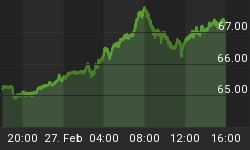The space … space has been quite the scene of legal drama recently, with everything from a NASA astronaut being accused of hacking her estranged husband’s bank account from space to residents of a small town in Texas being ordered out of their homes in case of an explosive SpaceX test launch. If prosecuted, the NASA astronaut--Anne McClaim, who drained her husband’s bank account from the International Space Station earlier this year during a divorce dispute--will officially have committed the first-ever space crime.
And in Boca Chica, Texas, where SpaceX’s “Starhopper” started its launch today, the town’s residents were warned of a potential “overpressure event” capable of breaking glass in nearby buildings.
It wasn’t an empty warning, either, considering that during the first Starhopper launch in July, some 100 acres of a nearby wildlife refuge was set on fire.
In the end, the test was aborted, and Boca Chica windows were spared, though SpaceX enthusiasts were disappointed. They’d been hoping to see something more exciting that the last 20-meter hop in the dark by Starhopper, Elon Musk’s next-generation rocket. Monday’s test was supposed to have seen the Starhopper hit 150 meters off the ground and potentially do some other maneuvers.
For the time being, it’s the crime and big-dollar contracts that are keeping this industry exciting--not actual next-gen trips into space.
Take Virgin Galactic, for instance. It’s planning to have two space planes in the atmosphere with the unveiling of its new six-passenger SpaceShipTwo vehicle, VSS Unity. The new space plane has had two recent test missions and is now being prepared to relocate to Spaceport America in New Mexico, where Virgin has its commercial operations.
For this model, Virgin Galactic is building two SpaceShip Two planes in California, and reports say that one is almost ready to launch. Perhaps it’s a sign that it the company could soon be ready to fly tourists into suborbital space and back. Perhaps it’s not.
Bloomberg has enjoyed pointing out that Virgin Galactic has unveiled all sorts of bells and whistles for its flights, including champagne and caviar. All that’s missing is the flight itself.
Boeing is also making … progress. It’s Starliner crew capsule is tentatively scheduled to take off in October on its first unpiloted test flight to the International Space Station. This will be NASA/Boeing’s first Orbital Flight Test for Starliner.
“We’re heading towards an Orbital Flight Test here in October,” Peter McGrath, director of global sales and marketing for Boeing’s human space exploration program, said last week. “More than likely, the pad abort test will happen shortly after that, and then we’ll fly the Crew Flight Test vehicle, primarily when NASA’s ready.”
In the meantime, a crew of astronauts are training for their first mission to the International Space Station aboard Starliner, which could eventually be used to take tourists into space as well.
But for our purposes, it’s the money that’s of interest.
NASA got new suppliers after dropping the space ball for many years thanks to what amounts to the privatization of space and companies like SpaceX and Boeing.
Related: Hong Kong Residents Are Fleeing To Taiwan At A Record Pace
NASA, for instance, has had to use Russian spacecraft to get crew to the $100-billion International Space Station, according to Reuters. Now, NASA is paying out some $7 billion to both SpaceX and Boeing to build spacecraft to accomplish this without the Russians.
Against the backdrop of this, there’s also a brewing legal drama involving the U.S. Force One and Jeff Bezos’ Blue Origin space venture.
In October last year, Blue Origin, Northrop Grumman and United Launch Alliance (ULA) won $2.3 billion in U.S. Air Force contracts. The breakdown was $500 million for Blue Origin, nearly $800 million for Northrop and almost $1 billion for ULA. (Yes, notably, Elon Musk’s SpaceX was left out of the equation.) The contracts were intended, on paper, to aid in the development of the three companies’ rockets--all slated to be operational around 2021.
Musk balked at the setup, suing the Air Force for excluding SpaceX.
There will also be a second bidding round for rockets scheduled to be operational from 2022 to 2026. But this time around, only two companies will be chosen.
Bezos’ Blue Origin is now protesting this, presumably because Bezos thinks that his company will be the one left out, though no contracts have been awarded.
But Blue Origin’s bigger gripe with the 2-company move is that the two winning companies will win far too large a share of the space contracts. In other words, Blue Origin argues that this would create a space duopoly and destroy competition.
“Unless the Air Force changes its approach, this procurement will perpetuate a market duopoly in national security space launch well into the next decade, causing higher launch prices, less assured access to space, and a missed opportunity to expand our national security interests and bolster U.S. leadership in space,” the company said in a statement.
By Michael Kern for Safehaven.com
















